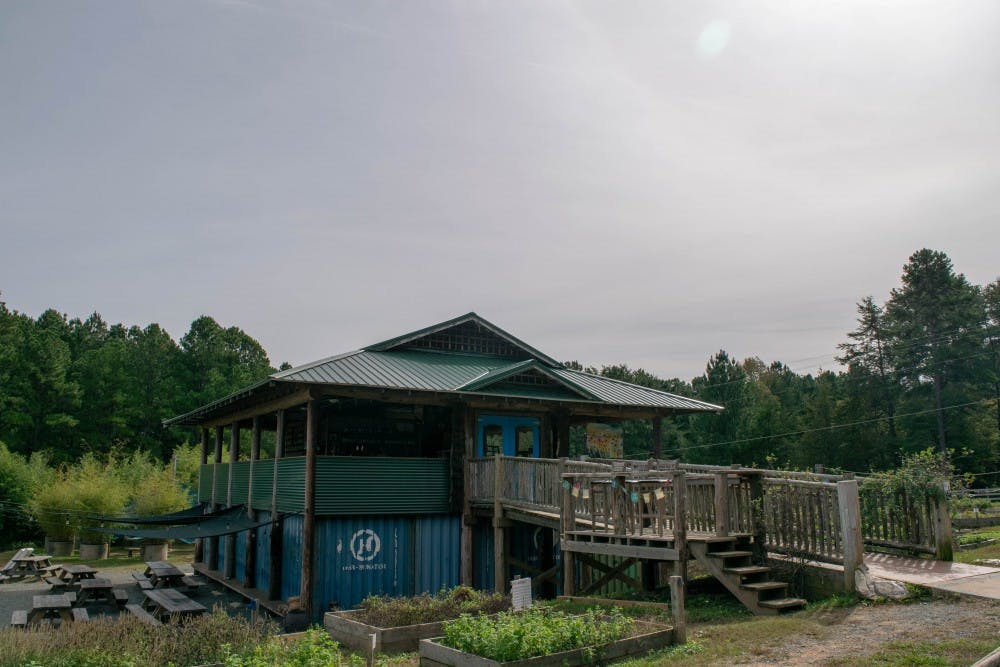They said the items they buy from non-local retailers, such as Costco, are ones that are not produced locally, such as mangoes and bananas, or products they don’t have a local source for, such as ham.
A former employee said working conditions became "unbearable" last summer when Fisher became more involved in the businesses.
“In general, there was just a very negative, dismissive vibe towards staff,” she said.
Dillon Ingold, who worked at the businesses for nine months, echoed this sentiment.
“Basically, the business model deteriorated and we had people who were unresponsive to any sort of input from employees, dismissive and sketchy about their labor practices,” he said.
One example cited by several former employees was a staff meeting where they said Fisher told them it wasn’t fair that employees were still receiving paychecks while he wasn’t making any money due to decreased profits.
“I don’t think they care about staff, and that could just be me personally, but they don’t give a shit about us whatsoever,” a current employee said.
In the meeting, Harper and Fisher discussed their profit-sharing policy, which shares the first 10 percent of the businesses’ profits with staff, and explained that employees had not been paid because there had not been any profits.
“I’ve never gotten paid," Fisher said. "David’s never gotten paid, this is all sweat."
Harper and Fisher said they told employees at the staff meeting that they wanted them to be ambassadors in their community mission, but many staff members were resistant.
The sentiments spilled over into how the workplace functioned, employees said. Fisher sent an email to staff in mid-January, explaining that state law does not require breaks of any kind for employees over the age of 16.
One current employee said he has to clock out when he takes breaks or when he goes to the restroom. North Carolina state law requires that breaks under 30 minutes long be paid.
To get the day's news and headlines in your inbox each morning, sign up for our email newsletters.
Fisher said employees are allowed to take breaks when business is slow. He also said breaks are paid.
“We’re so laid-back. That’s the problem, is we’ve probably been too laid-back. That’s why we’re losing money,” Fisher said.
Sierra Dunne, a senior at UNC who worked at the teahouse for three seasons, said her wage decreased prior to the email. State law mandates employers to notify staff in writing at least 24 hours before a wage reduction.
Dunne said she didn’t report this because she felt it was a result of disorganization rather than ill-intent.
“I never felt directly mistreated,” she said. “It honestly just felt like they had no idea what they were doing and that was why all of this was happening, that they really just didn’t have a good sense of how to run the place."
Fisher said the only employees whose pay was reduced prior to the email were those who were demoted after they committed thefts. Dunne said she did not commit theft and was not notified when her pay was raised and then dropped.
In addition to work conditions, former cafe employee Jean Hecker expressed doubts about Unique Places to Save.
“They’re championing this nonprofit organization that they run, but only in a way that was clearly intended to manipulate us and customers,” she said.
Both former employees and the owners said in one incident, a former manager broke into the cafe and stole money. One former employee and Harper and Fisher said $2,000 was stolen.
However, there was disagreement about what happened next. Harper said that after police officers confronted the suspect at his house, he met with Harper and returned the $2,000. Fisher said the suspect's father asked Fisher if he could rectify the situation, and Fisher said he told the father he would not press charges if he donated the equivalent of what the legal fees would have been, or $5,000 to $7,000, to Unique Places to Save. Another former employee said a $15,000 donation was requested.
Ingold said Fisher prioritized business interests over environmental concerns.
“It seems like his main motivation, even though he’s an environmentalist, was capitalistic,” he said. “He just was focusing on making money.”
One former employee said he believes the company's community-oriented mission has deteriorated over time.
“I believed in what they were doing, in their vision, but I think that the community comes first, and I think the people who are there, and have established what the Looking Glass was or is, are the reason they bought the place to begin with," he said. "And they’ve kind of just torn all that out."
Harper said The Honeysuckle’s initiatives and policies are ultimately about sustainability.
“The fact is, it’s about sustainability as a business, and not just sustainability for the environment, but sustainability for: can this place be here for the future based on its ability to support itself financially and be profitable as a business?” he said.
@slesnewski
city@dailytarheel.com




